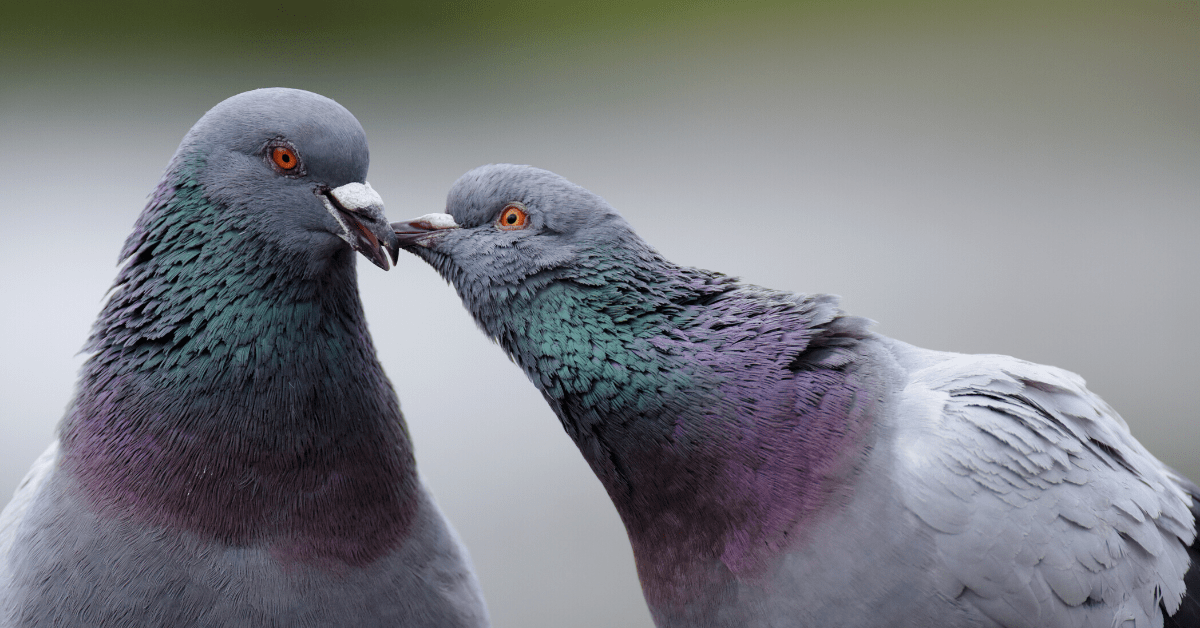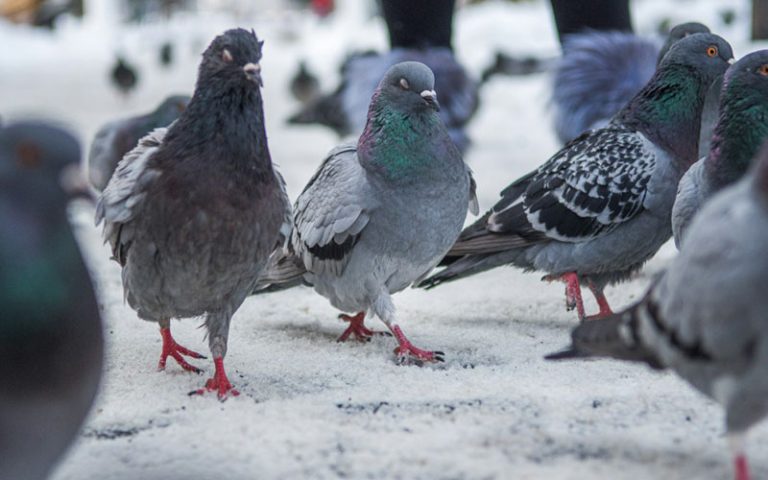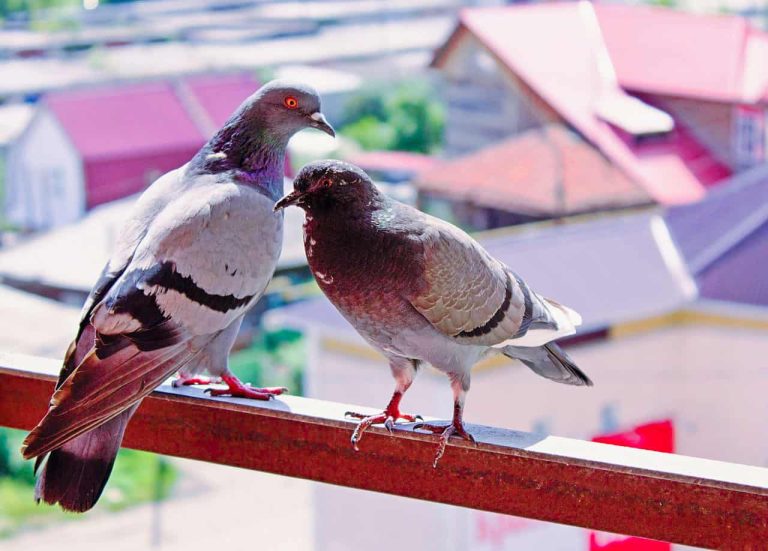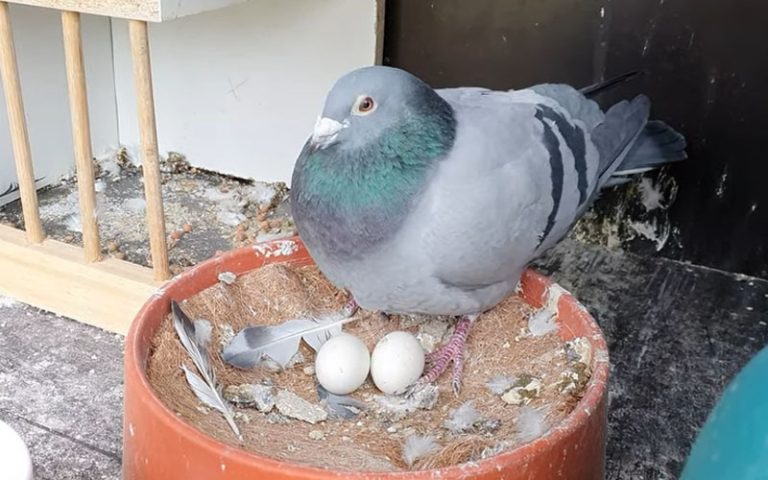Do Pigeons Mate for Life? Unveiling Avian Bonds
Pigeons do form strong bonds and often mate for life. Once they find a partner, they typically stay together.
Pigeons are fascinating creatures known for their loyalty and social behavior. Unlike many other bird species, they often choose a single mate and remain with them for life. This bond strengthens through mutual care and shared responsibilities, such as nest building and raising young.
Pigeon pairs communicate with each other through coos and body language, reinforcing their relationship. These strong partnerships contribute to their survival and success in urban environments.
Introduction To Pigeon Bonds
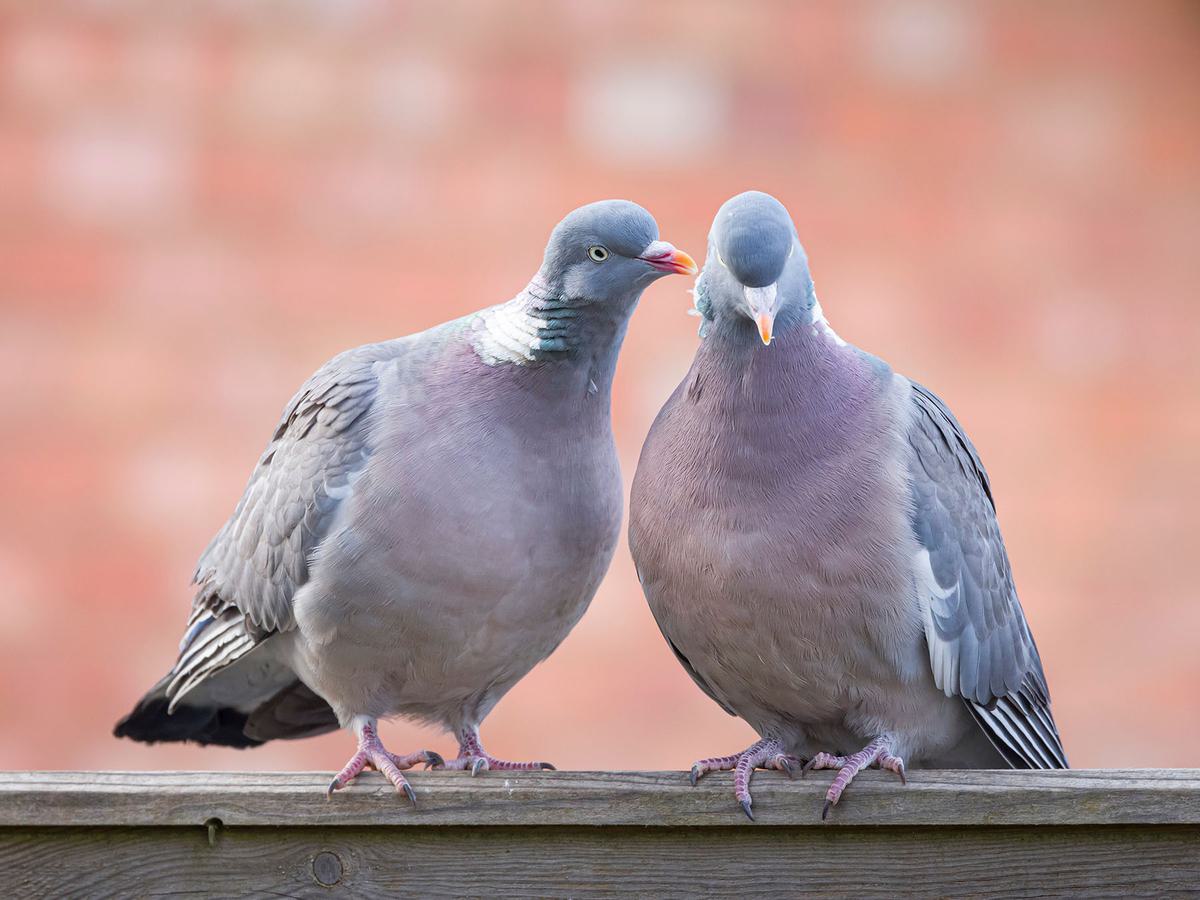
Credit: birdfact.com
Pigeons are more than just city birds. They have strong relationships. Understanding how they bond can reveal their social nature. Do pigeons mate for life? Let’s explore their unique connections.
The Nature Of Pigeon Relationships
Pigeons form lasting partnerships. These bonds often last for years. Here are some key points about their relationships:
- Monogamous pairs: Most pigeons choose one mate.
- Shared parenting: Both parents care for the young.
- Communication: They use coos and body language.
- Strong bonds: Pigeons show affection through preening.
Research shows that some pigeons return to the same mate year after year. This loyalty makes them unique in the avian world.
Comparing Avian Bonding Behaviors
Birds have different ways to bond. Pigeons stand out in several ways. Here’s a comparison of pigeons bonding with other birds:
| Bird Species | Bonding Type | Duration |
|---|---|---|
| Pigeons | Monogamous | Years |
| Swans | Monogamous | Lifetime |
| Chickens | Polygamous | Seasonal |
| Penguins | Monogamous | Seasonal |
While many birds form bonds, pigeons are notable for their long-term partnerships. Their ability to maintain these relationships adds to their charm and complexity.
The Concept of Monogamy In Birds
Birds display various mating habits. One intriguing question is whether they mate for life. Understanding this concept helps us appreciate their relationships. Monogamy is not universal among birds. Each species has its own mating strategies.
Defining Avian Monogamy
Avian monogamy refers to a mating system where a male and female pair bond. This bond can last for a single breeding season or a lifetime. Key features of avian monogamy include:
- Shared nesting duties
- Co-parenting of offspring
- Mutual defense of territory
Some birds, like swans and albatrosses, are known for lifelong partnerships. Others may only stay together during the breeding season. The strength of their bond varies among species.
Monogamy Across Bird Species
Different bird species exhibit various forms of monogamy. Some are strictly monogamous, while others are not. Here’s a quick overview:
| Bird Species | Monogamous Behavior |
|---|---|
| Swans | Typically mate for life |
| Albatrosses | Form long-term bonds |
| Robins | Seasonal monogamy |
| Pigeons | Often form strong pair bonds |
Factors influencing monogamy include environmental conditions and resource availability. Some birds may change partners based on food supply. Others may stay loyal due to strong social structures.
Understanding these behaviors gives insight into avian life. Each species has adapted its strategy for survival and reproduction. This diversity adds richness to the bird world.
Pigeons And Their Mating Habits
Pigeons are fascinating creatures with unique mating behaviors. They show strong bonds with their partners. Understanding their mating habits reveals much about these birds. Do they mate for life? Let’s explore.
Initiating The Bond
Pigeons usually choose their mates based on several factors:
- Physical appearance: Bright colors attract potential partners.
- Behavior: Friendly and confident pigeons often attract mates.
- Location: Safe and familiar environments encourage bonding.
Once a pigeon finds a suitable partner, it initiates the bonding process. This often involves:
- Approaching the chosen mate.
- Engaging in mutual preening.
- Establishing a comfortable presence together.
Courtship Rituals In Pigeons
Pigeons display interesting courtship rituals to strengthen their bond:
| Ritual | Description |
|---|---|
| Bowling | Pigeons bob their heads to impress each other. |
| Coos | Soft cooing sounds signal affection and attraction. |
| Wing Flapping | Flapping wings show excitement and readiness to mate. |
These rituals help pigeons communicate their feelings. They reinforce the bond between mates. Strong connections lead to successful breeding.
Pigeons often form lasting partnerships. They work together to raise their young. This commitment showcases their dedication to each other.
Do Pigeons Mate for Life?
Pigeons are fascinating creatures. Many people wonder, do pigeons mate for life? This question touches on their social structures and behaviors. Understanding their mating habits reveals much about their lifestyles.
Observations From The Wild
In the wild, pigeons often form strong bonds. Here are some key observations:
- Pigeons usually pair up during the breeding season.
- They perform courtship displays to attract mates.
- Pigeon couples often share nesting duties.
- They help each other find food and protect their young.
These behaviors suggest a level of commitment. Many pairs stay together for several breeding seasons. Some may even remain together for life.
Factors Influencing Pigeon Pair Bonds
Several factors impact pigeon relationships. These include:
- Availability of mates: Limited options can strengthen bonds.
- Environmental conditions: Harsh environments may encourage teamwork.
- Flock dynamics: Social structures in flocks influence pairing.
- Genetics: Some pigeons may have a natural tendency to bond.
These factors play a crucial role in how long pigeons stay together. Strong bonds can lead to successful breeding and survival.
The Role of Nesting In Pigeon Bonds
Nesting plays a crucial role in forming strong bonds among pigeons. This process not only helps them reproduce but also strengthens their relationship. Understanding how pigeons choose their nesting sites and build nests reveals much about their mating habits.
Choosing The Nest Site
Pigeons are particular about where they build their nests. They prefer safe and hidden locations. Common choices include:
- Under rooftops
- In tree branches
- Inside abandoned buildings
- On ledges of buildings
These sites offer protection from predators. Safety encourages pigeons to return to the same area. This choice strengthens their pair bond.
Nest Building And Bonding
Nest building is a shared activity for pigeon couples. This teamwork fosters trust and connection. Here’s how the process works:
- The male gathers materials.
- The female inspects and arranges them.
- They both add soft materials for comfort.
Common nesting materials include:
- Twigs
- Grass
- Feathers
- Paper
Once the nest is complete, the couple often stays close. They take turns incubating their eggs. This shared responsibility deepens their bond.
Challenges To Lifelong Bonds
Pigeons can form strong, lifelong bonds. Yet, several challenges can disrupt these connections. Understanding these obstacles helps us appreciate their relationships.
Predation And Human Interference
Predators pose a significant threat to pigeon pairs. Birds of prey, cats, and other animals can attack. These dangers can lead to the loss of one partner.
Human activities also disrupt pigeon relationships. Urban environments create risks, such as:
- Increased traffic
- Destruction of nesting sites
- Feeding restrictions
Such interference can separate bonded pigeons, making it hard to reunite.
Natural Breakage of Bonds
Sometimes, natural events cause pigeons to lose partners. Factors include:
- Illness or injury
- Age-related decline
- Environmental changes
These situations lead to natural breakages in bonds. Pigeons may need time to find new mates.
Despite these challenges, pigeons are resilient. They adapt to their surroundings and can form new connections.
Research On Pigeon Pairing
Pigeon mating habits reveal fascinating insights into their behavior. Many studies explore if pigeons form lifelong bonds. The findings show interesting patterns in their relationships.
Studies And Findings
Several studies examine pigeon pairing. Here are the key findings:
- Pigeons often choose the same mate. They return to their partners year after year.
- Bonding occurs quickly. Some pairs form strong connections within days.
- Separation affects behavior. If separated, pigeons show signs of stress.
| Study | Year | Key Findings |
|---|---|---|
| Pigeon Pairing Study 1 | 2008 | Pigeons form lasting bonds; mate selection is crucial. |
| Pigeon Behavior Research | 2015 | Separation leads to stress; strong emotional connections. |
| Long-term Mating Patterns | 2020 | Pigeons return to mates annually; high fidelity observed. |
Implications For Understanding Bird Behavior
Understanding pigeon pairing helps in several ways:
- Insight into social structures: Pigeons show complex social interactions.
- Conservation efforts: Knowledge aids in protecting their habitats.
- Animal welfare: Understanding bonding can improve care in captivity.
Research on pigeon pairing sheds light on avian relationships. It offers a window into the emotional lives of these birds.

Credit: www.rentokil.ie
Conservation And The Future of Pigeon Bonds
Pigeons are remarkable creatures. Their ability to form strong bonds is fascinating. However, urbanization threatens their habitats. Protecting these birds is essential for their future.
Impact of Urbanization
Urban areas expand rapidly. This growth affects pigeon populations significantly. Here are some effects of urbanization:
- Loss of natural habitats
- Increased pollution
- Fewer nesting sites
- Higher competition for food
These factors make it hard for pigeons to thrive. They struggle to find safe places to mate and raise their young.
Efforts To Protect Pigeon Habitats
Many organizations work to protect pigeon habitats. Their efforts ensure pigeons can bond and mate. Some key initiatives include:
- Creating green spaces in cities
- Establishing safe nesting areas
- Reducing pollution levels
- Educating communities about pigeons
Community involvement is vital. People can help by:
- Planting native trees
- Building birdhouses
- Participating in conservation programs
These actions support the future of pigeon bonds. Healthy environments lead to stronger pigeon relationships.

Credit: toughlittlebirds.com
Frequently Asked Questions
Do Pigeons Bond With A Single Partner?
Pigeons typically form strong, monogamous bonds and often mate for life.
How Do Pigeons Choose Their Mates?
Pigeons select partners based on courtship displays and mutual preening, demonstrating their affection and compatibility.
What Is The Mating Ritual Of Pigeons?
Pigeon mating rituals include cooing, bowing, and synchronized movements to strengthen their bond before mating.
Can Pigeons Remate After Losing A Partner?
Yes, pigeons can remate if their partner dies or is lost, but they often take time to grieve.
Do Pigeons Really Mate for Life?
Pigeons do tend to mate for life. Once they find a partner, they form a strong bond. This connection is built through mutual grooming and sharing food. They often stay together year-round, raising several broods of chicks.
If one mate dies, the other may mourn and take time before finding a new partner. While some pigeons may change mates, most prefer the stability of a long-term relationship. Their loyalty makes them interesting to observe.
Overall, pigeons show a remarkable commitment to their partners, making them unique in the bird world.

